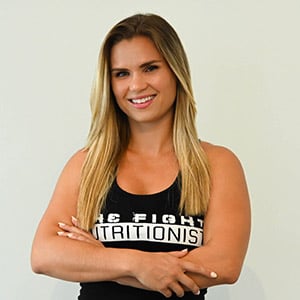When you’re not an expert in a particular subject, you often seek out someone who is. However, when it comes to food and nutrition it seems like EVERYONE is an expert. Between social media, various fad diet blogs, and the self-proclaimed “health experts” at the gym it’s difficult to know who’s a reliable source of information.So, what questions and qualifications do we want to look for when seeking out help with nutrition? Or perhaps you, yourself want to become more knowledgeable and help others! So, then what are your options if you want to have the title of “nutritionist”?
Overview of the Roles
First and foremost, nutrition is vastly complex and for that reason there are various certifications, degrees, and specializations that can qualify an individual to have the ability to do evaluations, make suggestions, and create plans to improve someone’s health. However, limitations may exist depending on the certification held.
The title of “nutritionist” can technically be held by any individual — there is really no law that prohibits someone from claiming themselves as a Nutritionist. Due to this, it’s important to ask for, or get specific certifications to have credibility.
Regarding certifications/titles, there are two main ones: Certified Nutrition Coach/Nutritionist or Registered Dietitian/Nutritionist (something important to note… dietitian and Nutritionist can be used interchangeably. But a Nutrition Coach CANNOT call themselves a dietitian, and that will be explained shortly).
Requirements to be a Dietitian
The most credible credential you can obtain to practice nutrition is a Registered Dietitian License. To become a registered dietitian, one must:
- Obtain at minimum, a Bachelor’s degree at an accredited university. Currently, a Master’s degree is now required for most jobs and will be REQUIRED by 2024.
- Completion of an Accreditation Council for Education in Nutrition and Dietetics accredited Didactic Program in Dietetics.
- Complete a one-year internship.
- Sit for a national examination.
- Complete 75 continuation education credits every 5 years to maintain the credential.
- Some states also require licensing for practice within that state.
Where Can You Work as a Dietitian
Registered dietitians can work in various settings such as hospitals, rehabilitation facilities, food service operations, community and wellness programs, professional sports leagues, and even general fitness/training facilities.
Registered dietitians are allowed to prescribe meal plans and supplements and coach individuals with medical illnesses/diseases. Treating individuals with medical conditions is known as medical nutrition therapy, and this is the biggest factor that separates dietitians from general nutritionists or nutrition coaches. Medical nutrition therapy or MNT involves prescribing specific diets to help manage medical illnesses/conditions. Examples include individuals with diabetes (type 1 & 2), IBS, Crohn’s/IBD, celiac disease, kidney failure, cancer, etc.
What Are Some Limitations?
The title of Nutrition Coach/Nutritionist encompasses many of the same things as a dietitian, but with a few restrictions…
First, a Nutrition Coach is a trained mentor that acts as an accountability partner for their clients to achieve lifestyle changes and create better living habits. While nutrition is most definitely a focus for nutrition coaches, there are many other factors that are taken into consideration to develop a holistic approach to helping clients.
A Nutrition Coach might talk with their clients about eating habits, sleep, exercise, work/life balance, stress management, and social environments. By gaining information in these various areas of life, a Nutrition Coach can then develop goals and plans of actions with their clients to assist with behavior changes that will lead to a healthier lifestyle.
However, limitations exist for what information a Nutrition Coach is allowed to dispense.
What Can't a Nutrition Coach/Nutritionist do?
Let’s talk about what a Nutrition Coach CANNOT do:
- Nutrition coaches cannot diagnose or treat medical conditions
- Nutrition coaches cannot prescribe supplements or meal plans
- Nutrition coaches cannot prescribe or suggest medication
- Nutrition coaches cannot provide exercise prescriptions.
- Nutrition coaches cannot conduct psychological counseling or therapy.
- Nutrition coaches cannot prescribe plans or therapy to manage disease.
Nutrition coaches/nutritionists ARE allowed to provide GENERAL food/nutrition recommendations based on research literature. For example, if a client asks, “how much protein should I consume in a day?” A nutritionist is allowed to reply “Well research recommends at minimum 0.8g/kg/day up to 2.2g/kg/day. For your level of activity, it is recommended you’d most benefit from 1-1.2g/kg/day”.
Research, Research, and More Research
An important aspect of a Nutrition Coach is to be knowledgeable in current research regarding various diets, wellness statistics (i.e., obesity, common deficiencies), and supplements (since a Nutrition Coach can provide general information but not suggest or prescribe). It’s also important for nutrition coaches/nutritionists to be knowledgeable in signs/symptoms regarding nutrition and behavior abnormalities. When red flags appear, it’s the responsibility of the Nutrition Coach to refer appropriately if a condition requires more professional intervention.
For example, perhaps you become aware that your female client has some serious food aversions, is losing weight very rapidly, has an extreme fear of gaining weight, experiencing some hair loss, and now just told you she is no longer getting her period. These are classic signs of an eating disorder, in which it would be appropriate to refer this client to a psychiatrist, clinical psychologist, and/or a clinical dietitian.
Nutrition Job Possibilities Are (Mostly) Endless as a Nutrition Coach
Nutrition coaching jobs exist in multiple areas of health, fitness, and business industries. Nutrition coaches can work in schools, gyms, health food stores, wellness center, and even corporations!
For example, a Nutrition Coach working within a corporation can be responsible for organizing health fairs and educating team members on healthier food choices in the cafeteria.
If the corporation is patient centered, a nutrition coach’s responsibilities would be to conduct basic health evaluations of patients, collect health data and share it with team members, provide basic education on preventative care measures for clients, and help increase communication between patients and the health care team.
So, what is required to become a Nutrition Coach/Nutritionist? Most organizations will prefer at least a bachelor’s degree in health sciences, counseling, psychology, fitness, or related field. For most individuals a Bachelor’s in the field of nutrition would automatically qualify you as a “nutritionist”. A certification through the National Board for Health & Wellness Coaching would really help during the application process as well!
The National Board for Health & Wellness Coaching was developed in 2012 and is partnered with the National Board of Medical Examiners to help create an educational and trusted certification program for health and wellness coaches.
According to the National Board for Health & Wellness Coaching, in order to qualify for their exam, one must:
- Complete a NBHWC approved training program. Which entails a minimum number of hours of training and education in approved areas of study.
- Complete 50 health and wellness coaching sessions.
- Have an associate’s degree or higher or 4,000 hours of work experience in any field.
Other nnutritionutrition coaching certifications include the American Counsel on Exercise (ACE), Precision Nutrition, National Association of Sports Medicine (NASM), and International Society of Sports Nutrition (ISSN).
Summary
Having more individuals that are properly educated in areas of nutrition, wellness, and fitness will serve individuals seeking help in tremendous ways! However, before working with an individual it is important to discern the frauds from the experts. The best way to determine if someone is trustworthy is asking if they have their registered dietitian credential. This will automatically be telling that they’ve received proper education and training to be giving dietary information.
If not, inquire as to where they received their nutrition certification or what their educational background is in/specialties are. Whether you’re seeking help or want the credibility to help others, the right questions must be asked to determine credibility!
For more information on this topic, check out our NASM-CNC page.

















